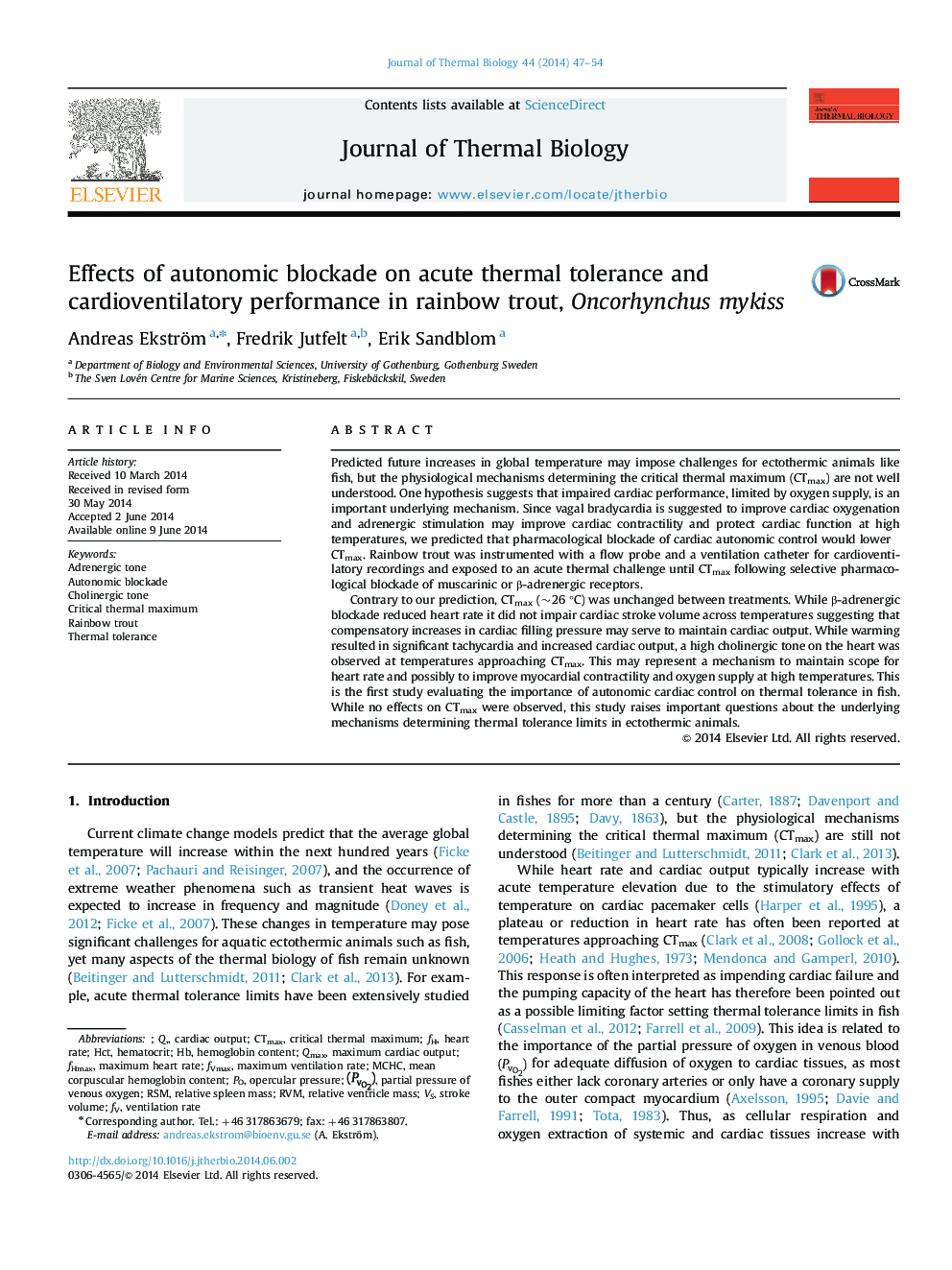| کد مقاله | کد نشریه | سال انتشار | مقاله انگلیسی | نسخه تمام متن |
|---|---|---|---|---|
| 2842907 | 1571101 | 2014 | 8 صفحه PDF | دانلود رایگان |

• Cardiac autonomic blockade did not influence CTmax in rainbow trout.
• A high vagal tone on the heart is maintained at temperatures approaching CTmax.
• Adrenergic blockade did not impair cardiac stroke volume at high temperatures.
• No correlations between CTmax and hematological variables were found.
Predicted future increases in global temperature may impose challenges for ectothermic animals like fish, but the physiological mechanisms determining the critical thermal maximum (CTmax) are not well understood. One hypothesis suggests that impaired cardiac performance, limited by oxygen supply, is an important underlying mechanism. Since vagal bradycardia is suggested to improve cardiac oxygenation and adrenergic stimulation may improve cardiac contractility and protect cardiac function at high temperatures, we predicted that pharmacological blockade of cardiac autonomic control would lower CTmax. Rainbow trout was instrumented with a flow probe and a ventilation catheter for cardioventilatory recordings and exposed to an acute thermal challenge until CTmax following selective pharmacological blockade of muscarinic or β-adrenergic receptors.Contrary to our prediction, CTmax (~26 °C) was unchanged between treatments. While β-adrenergic blockade reduced heart rate it did not impair cardiac stroke volume across temperatures suggesting that compensatory increases in cardiac filling pressure may serve to maintain cardiac output. While warming resulted in significant tachycardia and increased cardiac output, a high cholinergic tone on the heart was observed at temperatures approaching CTmax. This may represent a mechanism to maintain scope for heart rate and possibly to improve myocardial contractility and oxygen supply at high temperatures. This is the first study evaluating the importance of autonomic cardiac control on thermal tolerance in fish. While no effects on CTmax were observed, this study raises important questions about the underlying mechanisms determining thermal tolerance limits in ectothermic animals.
Journal: Journal of Thermal Biology - Volume 44, August 2014, Pages 47–54